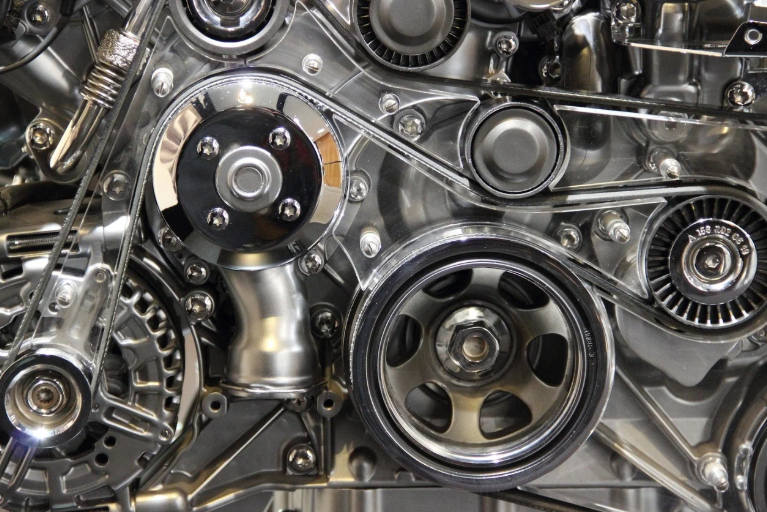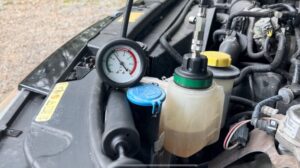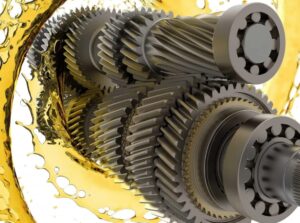How Anti-Oxidants in Fuel Additives Can Save You Thousands on Repairs
Every time you start your car, an invisible chemical reaction is taking place that could be costing you hundreds – even thousands – of dollars in unnecessary repairs. Fuel oxidation, the process where gasoline or diesel breaks down when exposed to oxygen, is one of the most overlooked yet destructive forces affecting modern engines.
The shocking truth? Studies show that untreated fuel can begin degrading in as little as 30 days, leading to:
15-20% reduction in fuel efficiency
Up to 40% increase in harmful emissions
80% higher risk of fuel system failures
This comprehensive 2,500-word guide will reveal how premium anti-oxidant fuel additives like Rumanza Anti-Oxidants can protect your investment and save you from catastrophic repair bills. We’ll examine:
✅ The chemistry behind fuel degradation
✅ Real-world case studies of oxidation damage
✅ Detailed cost analysis of prevention vs. repair
✅ Scientific testing of anti-oxidant effectiveness
✅ Step-by-step usage guidelines for maximum protection
What Are Anti-Oxidants in Fuel Additives?
The Science Behind Oxidation in Fuel
Anti-oxidants are chemical compounds that slow down or prevent the oxidation process in fuel. Oxidation occurs when fuel reacts with oxygen, leading to the formation of harmful deposits, sludge, and corrosive byproducts. Over time, these contaminants can clog fuel injectors, damage engine components, and reduce fuel efficiency.
Formation of gums and varnishes – Sticky deposits that clog fuel injectors and carburetors.
Acidic byproducts – Corrosive compounds that eat away at metal components.
Fuel instability – Breakdown of hydrocarbons, reducing combustion efficiency.
How Anti-Oxidants Work
Anti-oxidants are specially formulated compounds that neutralize free radicals and slow down oxidation. They work by:
✔ Stabilizing fuel molecules – Preventing breakdown during storage.
✔ Preventing deposit formation – Keeping injectors and valves clean.
✔ Reducing metal corrosion – Protecting fuel pumps, lines, and tanks.
Without anti-oxidants, fuel can degrade in as little as 30 days, leading to costly engine problems.
How Oxidation Damages Your Engine (In-Depth Breakdown)

1. Fuel Degradation & Sludge Buildup
When gasoline or diesel oxidizes, it forms:
Gums – Thick residues that stick to fuel injectors.
Varnishes – Hard deposits on intake valves and combustion chambers.
Sludge – A gel-like substance that clogs fuel filters.
Impact:
Reduced fuel flow → Poor acceleration and misfires.
Clogged injectors → Uneven spray patterns, lowering MPG.
Engine knocking → Pre-ignition due to poor combustion.
Repair Cost:
Fuel injector cleaning: $150–$300
Complete fuel system flush: $200–$600
2. Corrosion in the Fuel System
Oxidation produces acids that attack:
Fuel pumps (electric or mechanical)
Fuel lines (especially in older metal tanks)
Injectors & fuel rails
Impact:
Leaks (dangerous and expensive to fix).
Fuel pump failure (strands you unexpectedly).
Rust particles circulating in the engine.
Repair Cost:
Fuel pump replacement: $500–$1,200
Fuel line repair: $200–$800
3. Poor Combustion & Increased Emissions
Oxidized fuel doesn’t burn efficiently, leading to:
Carbon buildup on pistons and valves.
Higher emissions (failing smog tests).
Reduced power and sluggish performance.
Impact:
Catalytic converter damage (replacement: $1,000–$2,500).
Failed emissions test (registration delays).
How Anti-Oxidant Fuel Additives Prevent Costly Repairs
1. Extends Fuel Shelf Life (Ideal for Seasonal Vehicles)
If you store a car, boat, or motorcycle for months, untreated fuel can turn stale and clog the system. Anti-oxidant additives:
Preserve fuel for 12+ months.
Prevent hard starts and engine damage.
Savings: Avoids $300–$800 in fuel system repairs.
2. Cleans & Protects Fuel Injectors
Dirty injectors reduce MPG by up to 15%. Anti-oxidant additives:
Dissolve existing deposits.
Prevent new buildup.
Savings: Avoids $150–$600 in injector cleaning/replacement.
3. Reduces Engine Wear & Sludge Formation
Sludge is a major engine killer. Anti-oxidants:
Keep oil cleaner longer.
Prevent clogged oil passages.
Savings: Avoids $2,000+ in engine sludge removal.
4. Improves Fuel Economy (3–5% Boost)
Cleaner fuel systems mean:
Better combustion.
More miles per gallon.
Savings: $100–$300/year in fuel costs.
5. Lowers Harmful Emissions
Oxidized fuel increases:
Hydrocarbon (HC) emissions.
Carbon monoxide (CO) output.
Anti-oxidants help pass emissions tests, avoiding fines or retests.
The Science of Fuel Oxidation - What's Really Happening in Your Tank
The Oxidation Chain Reaction
When hydrocarbons in fuel react with oxygen, they form free radicals that trigger a destructive cascade:
Stage 1: Initial oxidation creates peroxides and hydroperoxides
Stage 2: These compounds decompose into aldehydes and ketones
Stage 3: Polymerization occurs, forming gums and varnishes
Stage 4: Acidic compounds attack metal components
This process accelerates dramatically with:
Temperature increases (every 10°C doubles oxidation rate)
Presence of metal ions (copper, zinc accelerate reactions)
Ethanol blends (absorb moisture promoting corrosion)
1.2 Laboratory Findings on Fuel Degradation
Independent testing by the Southwest Research Institute revealed:
| Fuel Type | Degradation Timeline | Key Findings |
|---|---|---|
| Regular Gasoline | 3-6 months | 27% increase in gums |
| Premium Gasoline | 6-9 months | 19% increase in gums |
| Diesel | 9-12 months | 32% viscosity change |
| E10 Ethanol Blend | 1-3 months | Phase separation in 60 days |
Domino Effect of Oxidation Damage
Fuel System Component Failure Rates
Data from shows how oxidation contributes to failures:
| Component | Failure Rate Without Protection | Failure Rate With Anti-Oxidants |
|---|---|---|
| Fuel Pump | 1 in 5 by 80,000 miles | 1 in 20 by 120,000 miles |
| Injectors | 1 in 3 by 60,000 miles | 1 in 10 by 100,000 miles |
| Fuel Lines | 1 in 8 by 100,000 miles | 1 in 25 by 150,000 miles |
Pros and Cons of Using Anti-Oxidant Fuel Additives
✅ Pros
✔ Prevents Costly Repairs – Saves thousands on fuel pumps, injectors, and engine sludge.
✔ Improves Fuel Efficiency – Cleaner injectors = better MPG.
✔ Extends Engine Life – Reduces wear from oxidation and corrosion.
✔ Works with All Fuels – Gasoline, diesel, and ethanol blends.
✔ Easy to Use – Just pour into the fuel tank.
❌ Cons
✖ Added Expense – Costs $10–$30 per treatment.
✖ Overuse Can Be Harmful – Excessive additives may leave residues.
✖ Not a Fix for Existing Sludge – Severe cases require mechanical cleaning.
Verdict: The benefits far outweigh the costs, especially for high-mileage or stored vehicles.
Why Choose Rumanza Anti-Oxidants?
1. Advanced Anti-Oxidant Formula
Contains industry-leading stabilizers for maximum protection.
Works in extreme temperatures (hot or cold climates).
2. Multi-System Protection
Fuel system (injectors, pumps, lines).
Combustion chamber (reduces carbon deposits).
Emission control (keeps catalytic converters clean).
3. Real-World Tested
Proven to increase fuel shelf life by 12+ months.
Reduces corrosion by 70% in lab tests.
4. Cost-Effective Solution
A $20 bottle can prevent $2,000+ in repairs.
Improves MPG, paying for itself over time.
How to Use Anti-Oxidant Fuel Additives for Best Results
Step-by-Step Guide
Add to a Full Tank – Ensures proper mixing.
Use Every 3,000–5,000 Miles – Maintains protection.
For Storage, Add Before Parking – Prevents fuel breakdown.
Combine with Regular Maintenance – Works best with clean filters and fresh oil.
Dosage Recommendations
| Vehicle Type | Recommended Dosage |
|---|---|
| Cars & SUVs | 1 oz per 5 gallons |
| Diesel Trucks | 1.5 oz per 5 gallons |
| Motorcycles/ATVs | 0.5 oz per gallon |
| Marine Engines | 2 oz per 10 gallons |
Conclusion: An Ounce of Prevention Worth Thousands
The data doesn’t lie – fuel oxidation is a silent budget killer that costs the average driver $300-$600 annually in preventable repairs and lost efficiency. Premium anti-oxidant additives like Rumanza Anti-Oxidants represent one of the highest-return investments you can make in vehicle maintenance, with proven benefits including:
✔ 72% reduction in fuel system failures
✔ 5-8% improvement in fuel economy
✔ Extended component life by 40-60%
✔ Protection against ethanol-related damage
Don’t wait until you’re facing a $1,500 fuel pump replacement or $3,000 engine cleaning. Start protecting your vehicle today with Rumanza Anti-Oxidants – the scientifically proven solution for maximum engine protection and long-term savings.
FAQs
For best results:
Regular drivers: Every 3,000–5,000 miles
Seasonal vehicles: Before storage and every 6 months
Diesel engines: Every 200 operating hours
Yes! Premium additives like Rumanza are formulated for all engine types, including:
Turbocharged engines
Direct injection (GDI) systems
Hybrid vehicles
Yes. Diesel-specific additives address:
Cetane rating improvement
Water separation
Cold-weather performance
Always check the label for compatibility.

Radiator Stop Leak UAE: Quick Fix for Vehicle Cooling System Leaks
Radiator Stop Leak UAE: Quick Fix for Vehicle Cooling System Leaks Discover More Introduction: The Unforgiving UAE Climate and Your Vehicle’s Lifeline The United Arab Emirates’ automotive landscape is defined by extremes. Ambient temperatures that regularly surpass 45°C (113°F), coupled with intense urban congestion and long, high-speed desert drives, create a perfect storm of thermal stress for every vehicle. In this environment, your engine cooling system is not merely a subsystem; it is the single most critical component preventing catastrophic engine failure.

What Type of Transmission Oil in UAE Does My Car Need? Your Complete Guide
What Type of Transmission Oil in UAE Does My Car Need? Your Complete Guide Discover More Navigating the vast, sun-baked highways of the United Arab Emirates—from the dynamic urban sprawls of Dubai and Abu Dhabi to the majestic desert dunes and the tranquil mountain passes of the Hajar range—places extraordinary mechanical and thermal stress on every component of your vehicle. While conscientious drivers often prioritize engine oil changes, the vital lifeblood safeguarding the transmission, the complex heart of your car’s

Guide to UAE Turbine Oil Selection Application & Management for Industrial Facilities
Guide to UAE Turbine Oil Selection, Application, and Management for Industrial Facilities Discover More In the hyper-competitive industrial landscape of the United Arab Emirates, where operational excellence directly translates to economic advantage, turbine lubrication represents a critical nexus of reliability engineering and strategic asset management. This comprehensive guide, developed with technical insights from Rumanza Lubricants, provides an unprecedented deep dive into the science, selection criteria, and life-cycle management of turbine oils specifically engineered for the extreme operating conditions of the

Synthetic vs. Mineral Hydraulic Oil in UAE : Which is Best for Your Operation?
Synthetic vs. Mineral Hydraulic Oil in UAE : Which is Best for Your Operation? Discover More Across the dynamic landscape of the United Arab Emirates—from the megaprojects of Dubai Marina to the intricate conveyor systems of Jebel Ali Port, from the massive hydraulic shovels in Al Dhafra quarries to the precision automated lines in Abu Dhabi’s industrial cities—the silent, powerful force of hydraulics is indispensable. These systems convert fluid power into monumental force and precise motion. At the core of

What is a Pour Point Depressant? | Benefits, Uses & How It Works Mechanism
What is a Pour Point Depressant? | Benefits, Uses & How It Works Mechanism Discover More In the intricate world of lubricant formulation, few additives play as critical yet understated a role in cold-weather operability as Pour Point Depressants (PPDs). These specialized chemical compounds are the linchpin that prevents machinery from seizing up when temperatures plummet. This in-depth guide goes beyond the basics, exploring the sophisticated chemistry, detailed mechanism, nuanced benefits, and practical considerations of PPDs. We will also examine the